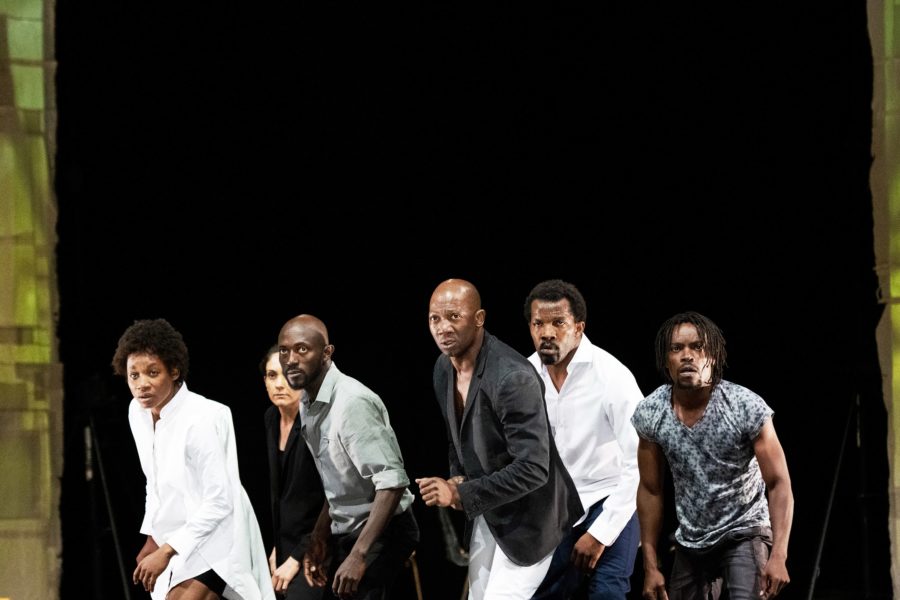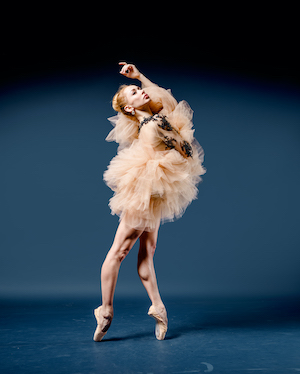The Nigerian musician and activist Fela Anikulapo Kuti fused jazz and African music throughout the 1960’s and 70’s, pioneering the music known as Afrobeat. It is Kuti’s now legendary music that served as a starting point for Serge Aimé Coulibaly’s conceptual and choreographic work in Faso Danse Théâtre’s production Kalakuta Republik.
The show is named after Kuti’s compound in Lagos, where his family and band members lived communally for the better part of the 1970’s and that Kuti declared independent from then military junta-led Nigeria. In 1977, a full-scale military assault burned the compound to the ground.
Coulibaly, originally from Burkina Faso, founded Faso Danse Théâtre in France in 2002, and much like his muse Fela Kuti, Coulibaly has fused two disparate styles – African and contemporary dance – and has focused on addressing political and social themes in his work.

Kalakuta Republik, is divided into two parts, each seemingly presenting a different aspect of a larger message. The first part, titled “Without a Story We Would Go Mad,” is built on a 30-minute mix of Kuti’s music. The beat is thick and fast-paced, so it’s expected that the dancers should come out full throttle, but the beat remains relentless and even overwhelming, and the ensemble choreography doesn’t stop for a moment, leaving dancers drenched in sweat and understandably breathless.
There is no narrative thread to this first part. The work’s abstraction is defined by feverishly paced, continuous movement that, like its musical accompaniment, becomes monotonous very quickly due to a lack of variation in rhythm and tone. The movements themselves are fresh and different and powerfully infused with jumps, footwork and arm and leg work that make African dance unique, so it’s disappointing that they come together to make so little visual sense.
A sofa and some boxes seem to allude to the space being Kuti’s compound. Projected images of what appear to be drone strikes seemingly reference the attack on the Kalakuta Republic or, even more broadly, attacks on vulnerable civilians anywhere, as the outlines of human figures are clearly visible in the areas where bombs rain down leaving behind only clouds of smoke and debris seconds later.

The second half, titled You Always Need a Poet, opens on a stage strewn with chairs and a box that serves as a podium for a woman in a flower dress who dances sensually, caressing her curves while men leer and drink. Whether we’re still in the compound is not entirely clear.
Jazz replaces Afrobeat in the piece, providing the evenings first and only contrast. This part of the production is also a muddled barrage of movement but with the added confusion of messaging projected against the back screen and text recited by different dancers in English and French.
At this point, it feels like Kalakuta Republik is trying but failing to be insightful and edgy. The piece strains to represent the revolutionary ideals and freedom that Fela Kuti embodied, and it certainly doesn’t do them justice. Those that enter this production unfamiliar with Kuti’s life and legacy will, sadly, leave without much elucidation.


